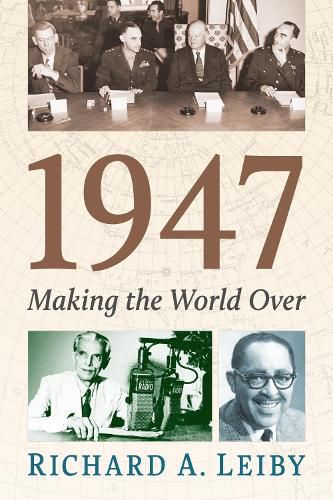Readings Newsletter
Become a Readings Member to make your shopping experience even easier.
Sign in or sign up for free!
You’re not far away from qualifying for FREE standard shipping within Australia
You’ve qualified for FREE standard shipping within Australia
The cart is loading…






World War II ended in 1945, but its effects were still being felt long after the surrender of Nazi Germany and Imperial Japan. Shortages in food, energy, and industrial production continued to plague much of the world, especially Europe, where strained economies teetered on the verge of collapse. As millions of war-weary people across the globe struggled to build a better future, the decisions made in 1947 proved crucial in ending the wartime milieu and ushering in a new and more stable age.
This book explores a wide variety of topics ranging from U.S. politics and international relations to big band jazz music, race relations in sports, and television technology, to tell the story of a world in transition. While focusing on the experiences of less well-known individuals who are often excluded from histories of the period, the author combines information from interviews with archival and secondary sources to explain why 1947 was a pivotal year in the emergence of the contemporary world.
$9.00 standard shipping within Australia
FREE standard shipping within Australia for orders over $100.00
Express & International shipping calculated at checkout
World War II ended in 1945, but its effects were still being felt long after the surrender of Nazi Germany and Imperial Japan. Shortages in food, energy, and industrial production continued to plague much of the world, especially Europe, where strained economies teetered on the verge of collapse. As millions of war-weary people across the globe struggled to build a better future, the decisions made in 1947 proved crucial in ending the wartime milieu and ushering in a new and more stable age.
This book explores a wide variety of topics ranging from U.S. politics and international relations to big band jazz music, race relations in sports, and television technology, to tell the story of a world in transition. While focusing on the experiences of less well-known individuals who are often excluded from histories of the period, the author combines information from interviews with archival and secondary sources to explain why 1947 was a pivotal year in the emergence of the contemporary world.